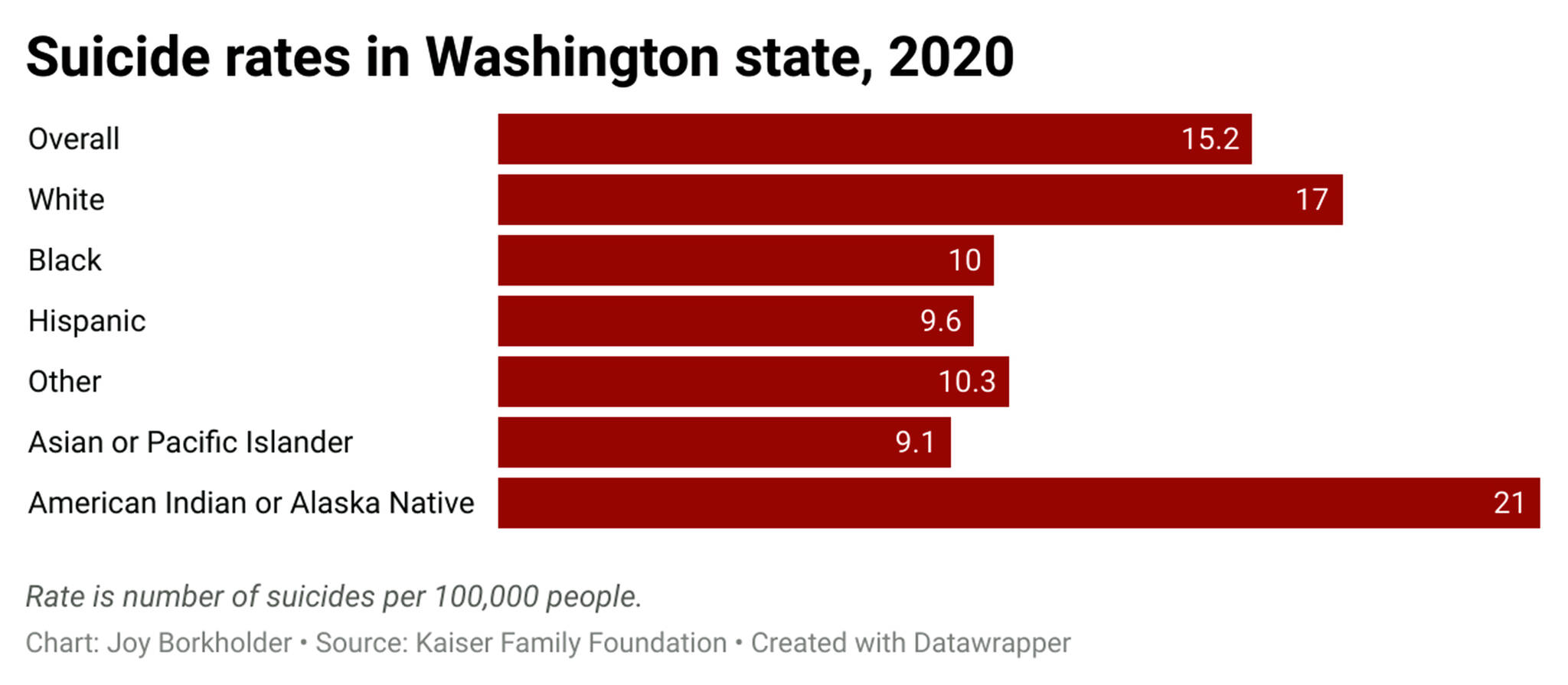Washington is now the only state with a mental health crisis hotline dedicated to American Indian and Alaska Native peoples.
Many tear-soaked eyes watched and listened as tribal leaders, state and federal officials, and crisis hotline staff celebrated the launch of the Native and Strong Lifeline on Thursday in Everett.
“It’s a really historic day,” said Loni Greninger, vice-chair of the Jamestown S’Klallam Tribe, and co-chair of the Governor’s Tribal Leaders Social Services Council. Tribal nations have been working on this for decades, she said. “We don’t want this to go by quietly – it’s time to celebrate.”
In Washington state, American Indian and Alaska Native people have had a higher suicide rate than all other racial/ethnic groups in nine of the past ten years.
Greninger described the “unimaginable relief that Native Americans and Alaska natives will have as they utilize this service going forward.” She spoke of the importance in her own life of having a Native counselor who understood immediately their collective culture, family dynamics in tribes, and historical and current traumas.
Native people in crisis, and those who support them, can call the 988 Lifeline crisis number and then select option 4 to be connected to Native counselors. These counselors work for the Volunteers of America Western Washington.
One of them, Heaven Arbuckle, an enrolled member of the Tulalip Tribes said she has benefited from culturally appropriate services on the Tulalip reservation as a survivor of domestic violence, and with diagnoses of severe anxiety and depression.
“It means a lot to me to be able to talk to those people who are going through crisis in tribal communities and relate with them,” she said.
Arbuckle’s first caller on the Native and Strong Lifeline was someone in a domestic violencesituation. She referred that person to the Legacy of Healing on the Tulalip Reservation.
Rochelle Williams is the tribal operations manager for Volunteers of America Western Washington, an enrolled member of the Ehattesaht First Nation and a descendant of the Tulalip Tribes. She spoke of a “new culture of healing taking root across Indian country.”
Native people have been an underserved population, especially in terms of mental health, she said. “It can feel like the first people of this land are always thought of last, if at all. Not anymore.”
The Native and Strong Lifeline, along with all of 988, is funded by a tax on cellular and internet phone service. The tax is 24 cents per line per month through the end of this year, then increases to 40 cents per line per month beginning in January 2023.
Talk to us
Please share your story tips by emailing editor@kentreporter.com.
To share your opinion for publication, submit a letter through our website https://www.kentreporter.com/submit-letter/. Include your name, address and daytime phone number. (We’ll only publish your name and hometown.) Please keep letters to 300 words or less.

